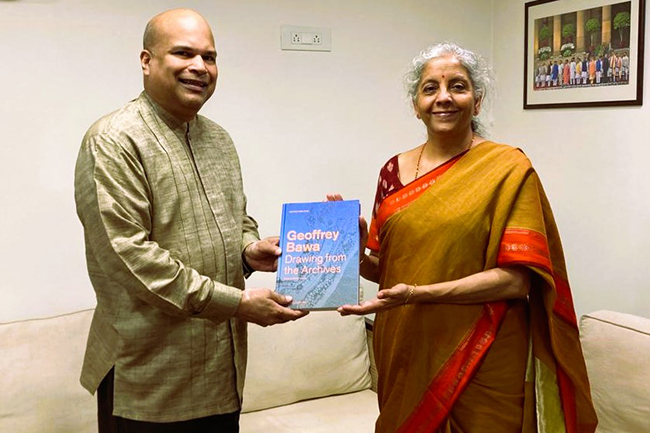Strengthening Regional Bonds: Capital Market Cooperation Between Pakistan, Sri Lanka, And Bangladesh

Table of Contents
Economic Rationale for Capital Market Integration in South Asia
Capital market integration offers significant economic advantages for Pakistan, Sri Lanka, and Bangladesh. A unified market fosters growth and stability across the region.
Increased Investment Opportunities
An integrated capital market significantly expands investment opportunities. This includes:
- Expanded access to capital: Businesses gain access to a larger pool of capital, facilitating expansion and innovation. This is crucial for infrastructure projects, renewable energy initiatives, and technological advancements. Consider the potential for Pakistani tech startups accessing Sri Lankan investment, for example.
- Portfolio diversification: Investors in all three nations can diversify their portfolios, reducing risk associated with relying solely on domestic markets. This diversification reduces volatility and enhances long-term returns.
- Attracting FDI: A more liquid and integrated regional market is highly attractive to foreign investors, leading to increased Foreign Direct Investment (FDI). This FDI fuels economic growth and job creation.
- Specific Examples:
- Infrastructure projects like the development of regional transportation networks.
- Renewable energy investments in solar and wind power projects across the three nations.
- Funding for technology companies developing innovative solutions for regional challenges.
Enhanced Regional Economic Stability
Capital market integration provides a significant buffer against economic shocks.
- Reduced vulnerability to shocks: A diversified regional market reduces the impact of economic downturns affecting a single nation. If one economy falters, others can provide support.
- Resilience to global downturns: Integrated markets offer greater resilience to global economic crises, mitigating the impact on individual economies.
- Improved macroeconomic stability: Increased capital flows and efficient resource allocation contribute to greater macroeconomic stability across the region.
- Cushioning Economic Blows:
- Diversified investment portfolios reduce the impact of sector-specific crises.
- Increased capital mobility helps countries weather currency fluctuations more effectively.
- Regional cooperation facilitates quicker responses to economic challenges.
Boosting Regional Trade and Commerce
Integration directly supports regional trade and commerce.
- Facilitating cross-border trade financing: Easier access to credit and financing for businesses engaged in regional trade.
- Reduced transaction costs: Streamlined processes and reduced bureaucratic hurdles lower costs for businesses.
- Supporting regional value chains: Integration facilitates the development of efficient and competitive regional value chains, boosting productivity and competitiveness.
- Facilitating Trade:
- Easier access to trade credit reduces reliance on expensive international financing.
- Reduced paperwork and regulatory hurdles speed up cross-border transactions.
- Joint investment opportunities in regional infrastructure projects (ports, logistics) further support trade.
Challenges to Capital Market Cooperation
Despite the numerous benefits, several hurdles must be addressed to achieve successful Capital Market Cooperation South Asia.
Regulatory Differences and Harmonization
Significant regulatory differences pose a major challenge.
- Harmonization needed: Regulations, accounting standards, and legal frameworks require harmonization to create a seamless market.
- Establishing a common regulatory body: Creating a unified regulatory framework or a cooperative body to oversee the integrated market will be challenging but crucial.
- Conflicts between national priorities: Balancing national regulatory priorities with the needs of a regional market requires careful negotiation and compromise.
- Regulatory Hurdles:
- Different listing requirements for securities across the three exchanges.
- Varying levels of investor protection regulations.
- Discrepancies in accounting standards and auditing practices.
Infrastructure Gaps and Technological Limitations
Robust infrastructure and technology are essential for integration.
- Electronic trading platforms: Developing reliable and secure electronic trading platforms is crucial for efficient market operations.
- IT infrastructure upgrades: Significant investments in upgrading IT infrastructure across all three nations are needed.
- Cybersecurity and data privacy: Ensuring robust cybersecurity measures and data privacy protections is paramount.
- Technological Needs:
- High-speed internet connectivity across the region.
- Secure and reliable data centers to support trading platforms.
- Advanced cybersecurity systems to protect against threats.
Political and Geopolitical Risks
Political and geopolitical factors can hinder cooperation.
- Political instability and uncertainty: Addressing political instability and uncertainty within each nation is crucial for attracting investment.
- Geopolitical risks and tensions: Managing geopolitical risks and cross-border tensions will be critical for successful integration.
- Promoting trust and cooperation: Building trust and fostering strong cooperation between governments is essential for success.
- Political Obstacles:
- Political instability and uncertainty can deter investors.
- Cross-border disputes and trade conflicts can undermine cooperation.
- Lack of political will to implement reforms can hinder progress.
Strategies for Fostering Capital Market Cooperation
A multi-pronged approach is needed to overcome challenges and foster cooperation.
Phased Approach to Integration
A phased approach, starting with pilot projects and gradually expanding cooperation, is a prudent strategy.
Strengthening Regional Regulatory Frameworks
Collaborative efforts to harmonize regulations and establish a cooperative regulatory framework are essential.
Investing in Infrastructure Development
Significant investment in upgrading IT infrastructure and creating efficient trading platforms is critical.
Promoting Information Sharing and Transparency
Improving data accessibility and fostering greater transparency will build investor confidence.
Capacity Building and Training
Developing expertise in capital market operations and regulation through training programs is crucial.
- Specific Actions:
- Joint working groups to harmonize regulations.
- Technical assistance programs to upgrade IT infrastructure.
- Capacity building workshops on capital market best practices.
- Regular meetings and information sharing sessions among regulators.
Conclusion
Strengthening regional bonds through enhanced Capital Market Cooperation South Asia among Pakistan, Sri Lanka, and Bangladesh offers substantial economic benefits. While challenges exist, a phased approach focused on regulatory harmonization, infrastructure development, and promoting transparency can pave the way for a more integrated and vibrant South Asian capital market. Embracing this opportunity to foster capital market cooperation in South Asia is crucial for unlocking the region's vast economic potential. Let's work together to realize the full potential of South Asian capital market cooperation.

Featured Posts
-
 Nottingham Attack Survivors Speak Out Their Stories Of Resilience
May 10, 2025
Nottingham Attack Survivors Speak Out Their Stories Of Resilience
May 10, 2025 -
 Gaza Under Siege Hunger Sickness And Crime Flourish Under Israels Blockade
May 10, 2025
Gaza Under Siege Hunger Sickness And Crime Flourish Under Israels Blockade
May 10, 2025 -
 Epstein Records Senate Democrats Accusations Against Pam Bondi
May 10, 2025
Epstein Records Senate Democrats Accusations Against Pam Bondi
May 10, 2025 -
 Valdo Calocanes Nottingham Victims Survivors Devastating Statement
May 10, 2025
Valdo Calocanes Nottingham Victims Survivors Devastating Statement
May 10, 2025 -
 Flat Stock Market Close India Pakistan Tensions Impact Trading
May 10, 2025
Flat Stock Market Close India Pakistan Tensions Impact Trading
May 10, 2025
